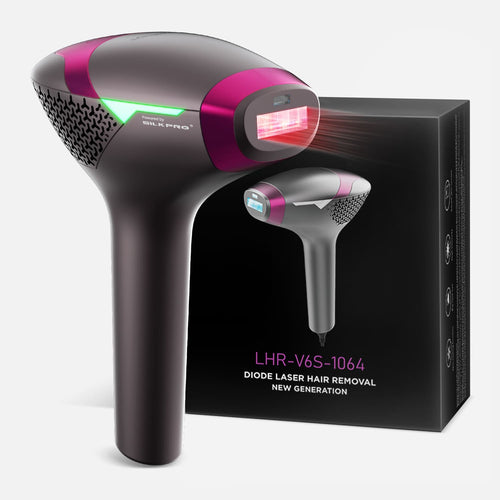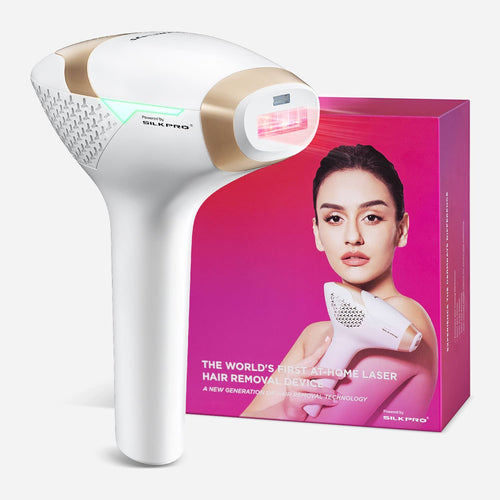Understanding Laser Hair Removal:
Laser hair removal is a widely-used cosmetic procedure that utilizes laser light to get rid of unwanted hair. Concentrated light beams target and destroy hair follicles, inhibiting future hair growth. The process is known for its effectiveness, precision, and long-lasting results. The medical profession disagrees on whether laser hair removal is safe to use while pregnant.
The primary concern surrounding laser hair removal during pregnancy is the potential impact of the procedure on the developing fetus. While there is limited Research on the subject, some medical professionals advise against undergoing laser treatments and voiding certain medications during pregnancy to protect the unborn child from harm. The main concerns include:
1. Heat Absorption
Laser hair removal relies on the absorption of light energy by the pigment in hair follicles, which transforms into heat. There is a worry that the heat generated during the procedure might be absorbed by surrounding tissues, potentially affecting the developing fetus.
2. Hormonal Changes
Pregnancy induces hormonal fluctuations that can alter the sensitivity of the skin. Laser hair removal may cause heightened skin sensitivity, leading to discomfort or adverse reactions in pregnant women.
3. Limited Research
The lack of extensive Research on the safety of laser hair removal during pregnancy is inconclusive. Without sufficient evidence, many medical professionals err on the side of caution and recommend avoiding the procedure during this critical period.
Safety Measures and Precautions:
If a woman decides to undergo laser hair removal while pregnant, it is crucial to take certain precautions to minimize potential risks:
1. Consultation with Healthcare Provider
Before considering laser hair removal during pregnancy, you must consult a healthcare
provider. They are capable of offering customized recommendations that are tailored to the specific requirements of the user. The individual's health, gestational age, and any existing medical conditions.
2. Use of Low Energy Levels
If a healthcare provider approves the procedure, the laser technician should use lower energy levels to minimize the risk of heat absorption by surrounding tissues. By doing this, the possibility of negative consequences for the mother and the fetus can be decreased.
3. Targeted Areas
Focusing on smaller treatment areas and avoiding large-scale procedures can help limit the amount of heat generated during the laser hair removal process.
4. Cooling Measures
Cooling devices or gels may be employed during the procedure to alleviate discomfort and prevent excessive heat buildup in the treated areas.
5. Delaying Treatment
Given that pregnancy hormones can affect the skin's sensitivity, it might be advisable to delay laser hair removal until after childbirth. Postponing the procedure can mitigate potential risks and ensure a safer experience.
Alternatives to Laser Hair Removal During Pregnancy:
For pregnant women seeking hair removal alternatives, several safe and temporary options are available:
1. Shaving
Shaving is a quick and non-invasive method of hair removal that poses no known risks during pregnancy. It can be easily performed at home, and "The task in question does not require exposure to any substances that could potentially be harmful."
2. Waxing
During pregnancy, waxing can be considered an alternative method to get rid of unwanted hair. However, it is essential to choose a gentle, pregnancy-safe wax to minimize the risk of skin irritation.
3. Topical Creams
Depilatory creams, or hair removal creams, dissolve hair below the skin's surface for quick and painless results. It can be applied topically to dissolve hair at the skin's surface. Pregnant women should choose products with caution, ensuring they are free from harsh chemicals that may pose risks during pregnancy.
Safety Concerns:
One of the primary concerns regarding laser hair removal during pregnancy is the potential impact of laser energy on the developing fetus. Research in this specific area is limited, but some studies suggest that the thermal effects of laser treatment could potentially harm fetal development, particularly during the first trimester when organogenesis occurs.
During pregnancy, hormonal changes can have an impact on the body. skin sensitivity makes pregnant women more prone to discomfort or adverse reactions during laser hair removal sessions. The skin has higher levels of melanin. a hormone-related phenomenon known as melasma, or the mask of pregnancy, might also heighten the risk of pigmentation changes or hyperpigmentation in response to laser exposure.

Professional Recommendations:
The American College of Obstetricians and Gynecologists (ACOG) and the U.S. Food and Drug Administration (FDA) provide guidelines regarding cosmetic procedures during pregnancy. Both organizations recommend avoiding elective cosmetic procedures during pregnancy, primarily due to the lack of comprehensive research on the safety of these procedures for the developing fetus.
Moreover, many dermatologists and laser hair removal practitioners may decline to perform the procedure on pregnant women as a precautionary measure despite the absence of conclusive evidence regarding potential harm.
1. Alternative Hair Removal Methods
For expectant mothers seeking hair removal options during pregnancy, alternative methods that do not involve exposure to laser energy are often recommended. These methods include traditional shaving, waxing, and the use of depilatory creams, all of which have been deemed safe during pregnancy when used according to product instructions.
2. Safety Precautions and Individual Considerations
It's crucial to emphasize that every pregnancy is unique, and individual circumstances may vary. Before considering any cosmetic procedure during pregnancy, including laser hair removal, expectant mothers must consult with their healthcare provider Medical professionals can offer customized advice based on individual needs and conditions." the specific health condition of the pregnant woman and the developmental stage of the fetus.
Additionally, certain factors may influence the safety of laser hair removal during pregnancy. For instance, the type of laser used, the area being treated, and the duration of exposure to laser energy can all impact the potential risks. It is essential to choose an experienced and qualified practitioner who is knowledgeable about the specific considerations when treating pregnant women.
3. Alternatives and Temporary Solutions
Given the potential risks associated with laser hair removal during pregnancy, many women opt for alternative and temporary hair removal solutions. Shaving remains a safe and efficient option, and the use of electric shavers or epilators can provide longer-lasting results without the potential risks associated with chemical-based depilatory creams.
Waxing, although it might be more uncomfortable due to increased skin sensitivity, is generally considered safe during pregnancy. It is essential to use gentle waxing products and techniques to minimize the risk of skin irritation.
Depilatory creams, when used according to the product instructions and in well-ventilated areas, are considered safe during pregnancy. However, it's important to perform a patch test before widespread application to ensure there is no adverse reaction.
4. Postpartum Considerations
For women who postpone laser hair removal until after childbirth, it is advisable to wait until they have completed breastfeeding, as hormonal changes during breastfeeding can also impact skin sensitivity and the body's response to cosmetic procedures.
Conclusion:
Meanwhile, laser hair removal is a popular choice for those looking for a long-term solution to unwanted hair. Its safety during pregnancy remains a matter of concern and debate. The lack of comprehensive research on the subject and the potential risks associated with heat absorption and hormonal changes warrant careful consideration.
In the end, the choice to have laser hair removal during pregnancy, it is important to consult with a healthcare provider before making any decisions, taking into consideration the individual's specific needs and circumstances: health, gestational age, and any specific medical conditions. If approved, precautions such as using lower energy levels, targeting smaller treatment areas, and employing cooling measures can help minimize potential risks.
For those who prefer to err on the side of caution, alternative hair removal methods such as shaving, waxing, and topical creams offer safe and temporary solutions during pregnancy. As with any medical or cosmetic procedure, the key is informed decision-making and open communication with healthcare professionals, which play a vital part in guaranteeing the health of the fetus and the mother during pregnancy.









Laisser un commentaire
Tous les commentaires sont modérés avant d'être publiés.
Ce site est protégé par reCAPTCHA, et la Politique de confidentialité et les Conditions d'utilisation de Google s'appliquent.